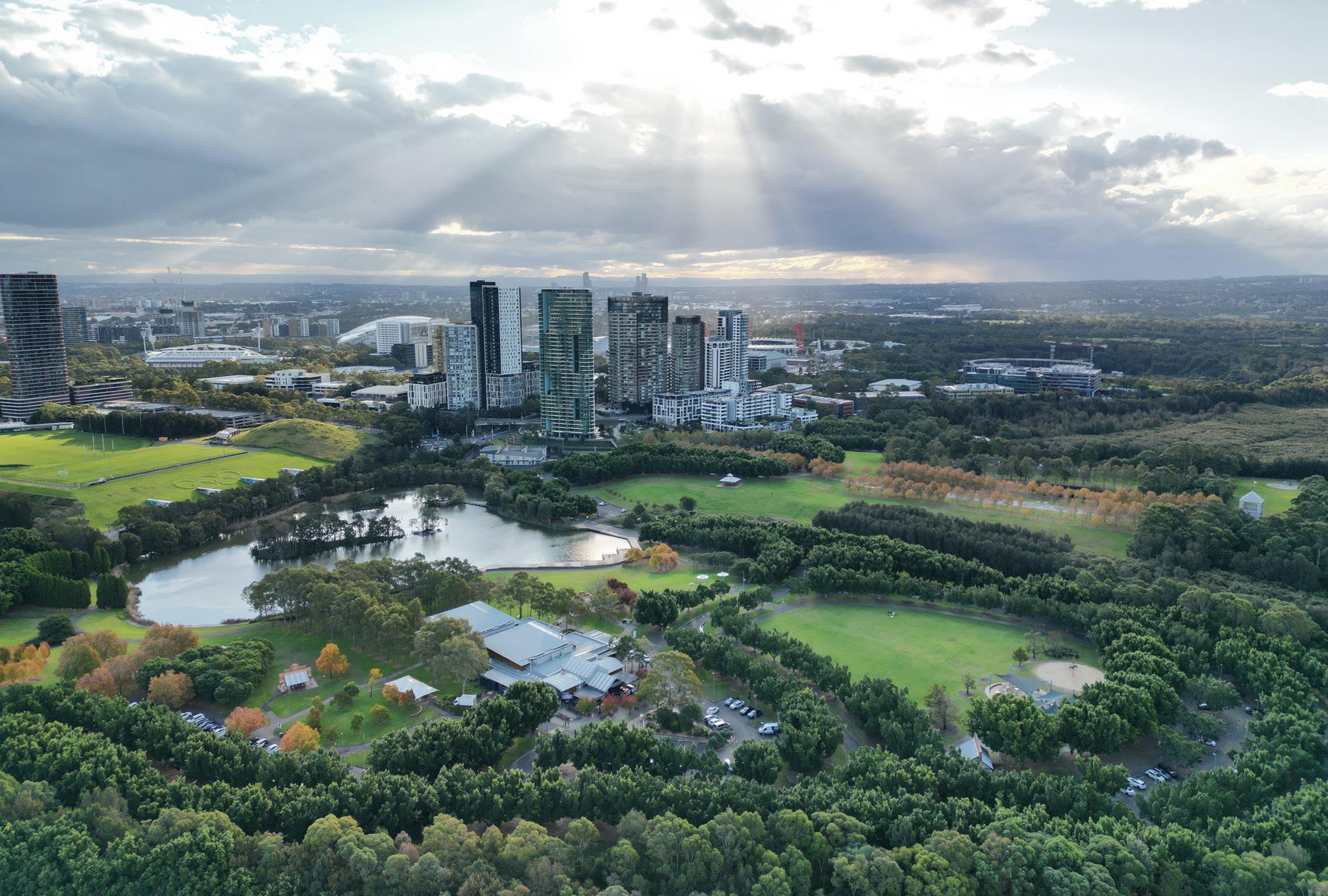
3 minute read
Keeping our Cities Cool with Green Spaces - SIMPaCT
The SIMPaCT (Smart Irrigation Management for Parks and Cool Towns) project is the first fully autonomous city cooling system that turns green spaces into effective urban air conditioning units.
The SIMPaCT project developed an autonomous irrigation system that improves climate change resilience of urban communities. The unique capability of SIMPaCT is its ability to manage park irrigation specifically for cooling of air and surface temperatures during hot summer days.
Machine learning algorithms and a digital twin are used to estimate accurate irrigation schedules that maintain optimum health of vegetation and improve water use efficiency at any day of the year.
The absorption of solar radiation, storage, and the subsequent emission of this energy as sensible heat leads to warming of air temperature across our cities, which in turn amplifies the risk of urban overheating and its associated negative impacts on public and ecosystem health, economic activities, services and infrastructure. Urban green infrastructure, like trees, gardens or parks, on the other hand, help keep cities cooler through shading of surfaces and evapotranspiration of water. As global warming leads to dryer and hotter summers, it is necessary to develop new strategies for urban cooling. Research has shown that well hydrated parks can lower peak daytime air temperatures by up to 4°C and this cool air can travel more than 1 km downwind. Thus, supercharging parks to generate maximum rates of cooling in summer increases human thermal comfort inside and around parks and lowers energy needs of nearby buildings.


SIMPaCT maximises cooling at Bicentennial Park in Sydney Olympic Park using sensors that measure soil moisture, ambient temperature and
humidity, wind speed and rainfall. LoRaWAN and 5G networks collect this real-time data which is ingested by a customised digital platform. The platform houses the digital twin of the park where geo-spatial models and machine learning algorithms continuously evaluate a large number of environmental scenarios to find the optimal irrigation solution for these scenarios. By ‘learning’ over time under which environmental conditions irrigation commands resulted in the ideal soil moisture levels, water use across the park is optimised while maximum air cooling is provided. Using wireless sensors and generating water saving and cooling benefits makes SIMPaCT an ideal solution to effectively address climate change risks for cities. The system is deliberately constructed to easily up- or down-scale, allowing implementation of the SIMPaCT technology in a wide range of irrigation applications under different environmental conditions. The operational and public-facing web-based dashboards, available at www. simpact-australia.com include data-rich visualisations allowing users to see current, historical and forecast environmental data. Park managers can easily determine faults and leaks in the irrigation system and visitors can choose the perfect day, time and location for activities in the park.
The successful development and implementation of SIMPaCT was only possible due to exceptional collaborative efforts. Under the leadership of Western Sydney University, scientists from UTS and Monash University, in partnership with The ARCs Group, Eratos, Centratech, HARC, SAPHI, Total Water, Sydney Olympic Park Authority, the NSW Department of Planning and Environment and Sydney Water, focussed on improving environmental quality, public health, and climate change resilience.
This innovative solution to urban overheating was awarded the 2023 NSW Sustainability Technology Impact Award.
Website: simpact-australia.com/








